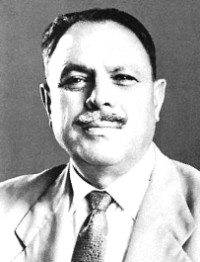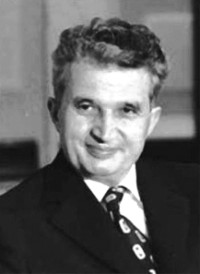|
Reflections
When the Dictators Fell . . .
Syed Badrul Ahsan
The fall of dictators is forever a reason for celebration. When an autocrat falls or when through some means the end of his dark regime comes to pass, we cheer the arrival of what we believe are days of hope and resurgence. Years down the road, we remember, in silence and heart-warming nostalgia, where we happened to be when news came of a dictator being toppled, of the heavy weight of oppression finally being lifted off our souls.
The first dictator whose fall I recall was Iraq's Abdel Karim Kassem. It was a macabre image of him that the newspapers carried in 1963. In Pakistan's Dawn newspaper, which my father read avidly in Quetta, there was the sight of a murdered Kassem, eyes horrifically open, seeming to promise retribution on all. For weeks after seeing that picture, I did not sleep well.
And then, six years after that, came the moment everyone had been waiting for. On the evening of March 25 1969, Field Marshal Mohammad Ayub Khan told us that he was finally calling it quits after more than a decade in power. With my father and his friends, I savoured that speech on the radio. It did not matter much that another military man had replaced him. Ayub was gone. My friends and I talked excitedly about it in school the next day.
 |
Abdel Karim Kassem |
And then we kept our ears glued to the door of the teachers' room. All our teachers were gravely listening to General Yahya Khan deliver his first speech to the nation as chief martial law administrator. His remarks gave little hint of his innate villainy. He left us quite charmed. But then came 1971. The monster in him came alive. One of the first thoughts that came to me, moments after his army had surrendered in Dhaka on December 16, related to the idea of what would now happen to him and his murderous junta in Rawalpindi. The answer came four days later. In shame, he handed over the presidency of a truncated Pakistan to the wily Zulfikar Ali Bhutto.
It is strange, and quite beautifully too, how certain momentous decisions can take you back to the past. The annulment of the Fifth and Seventh Amendments to the Bangladesh Constitution reminds you of the darkness that once overwhelmed us all in independent Bangladesh. It also is a joyous reminder of the times when we saw our home-grown dictators finally bite the dust. The news of General Ziaur Rahman's assassination in Chittagong came to me as I was meeting my teachers at the English department of Dhaka University. My masters final exams had just ended. I went up to Professor Serajul Islam Choudhury to ask him if indeed Zia had been murdered. He nodded and advised me to go home. I collected my brother Sadrul, who was a couple of years junior to me in the department, got on a bus and went home to Rankin Street.
I did not feel happy about Zia's end. But I did remember all the damage he had done to politics in the five years he had ruled as dictator. We did not need any more autocrats like him. But then came Hussein Muhammad Ershad. In the endless struggle against his regime, I was a participant, in my own way. I have walked through tear gas shells lobbed by his policemen, tears streaming down my face. I have attended rallies of the fifteen-party alliance calling for his fall. On the day he succumbed to popular pressure, I wrote an editorial for the Morning Sun hailing the dawn of a new era for the country. And I remembered, as Justice Shahabuddin Ahmed took charge of the country, how my friends and I had cheered the ouster of Khondokar Moshtaque in November 1975 and his replacement by Justice ASM Sayem.
 |
Nicolae Ceausescu |
The fall of Pakistan's Ziaul Haque, literally through a plane crash in Bahawalpur in August 1988, was for me a moment of renewal, for decent men everywhere. It was in the evening of August 17 that the news came to us on Bangladesh Television. My father and I sat through it, indeed through a goodly part of the night waiting for details of the dictator's end. Less than three years earlier, I had interviewed General Zia for the New Nation. With us in that room in the Pakistan high commissioner's residence in Dhaka were Sahibzada Yaqub Khan and Siddiq Salik.
Thoughts of the gods and poetic justice came to me as Romania's Nicolae Ceausescu fell in December 1989, but his murder made that fall a revolting affair. I was cheered when the British authorities placed General Augusto Pinochet Ugarte under arrest in London more than a decade ago. It was with a sense of relief that I watched images of the Shah of Iran leave his country. And then, in horror, I watched the ayatollahs put good men like Amir Abbas Hoveyda to death in Tehran in 1979.
Many moons have gone by. The monsoons have energised the planet. Famine has stalked the earth. The astral skies have caused incessant poetry to emerge from the souls of men.
And I have waited, with millions of others, for Hosni Mobarak and Muammar Gaddafi and Than Shwe, for the entrenched dynasties of the Middle East, for others like them, to go with the wind.
Copyright
(R) thedailystar.net 2010 |
